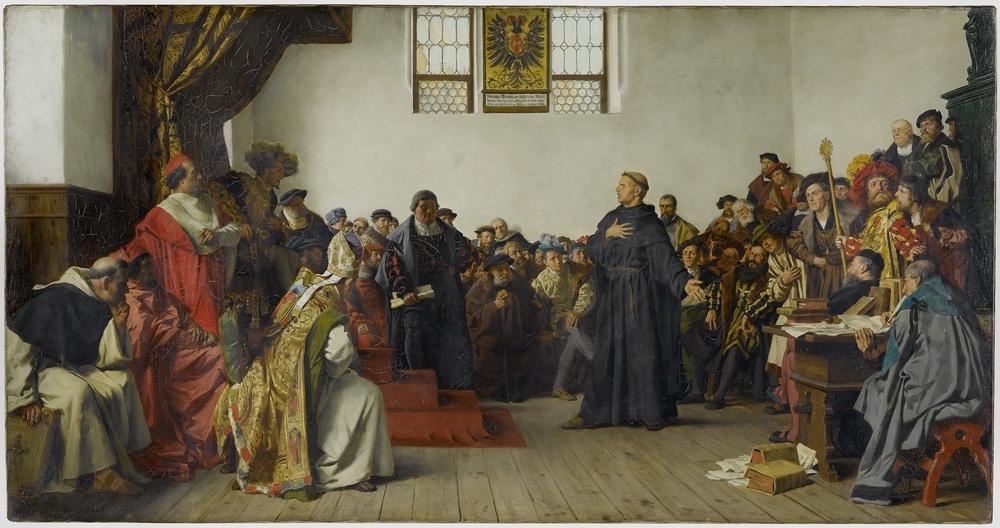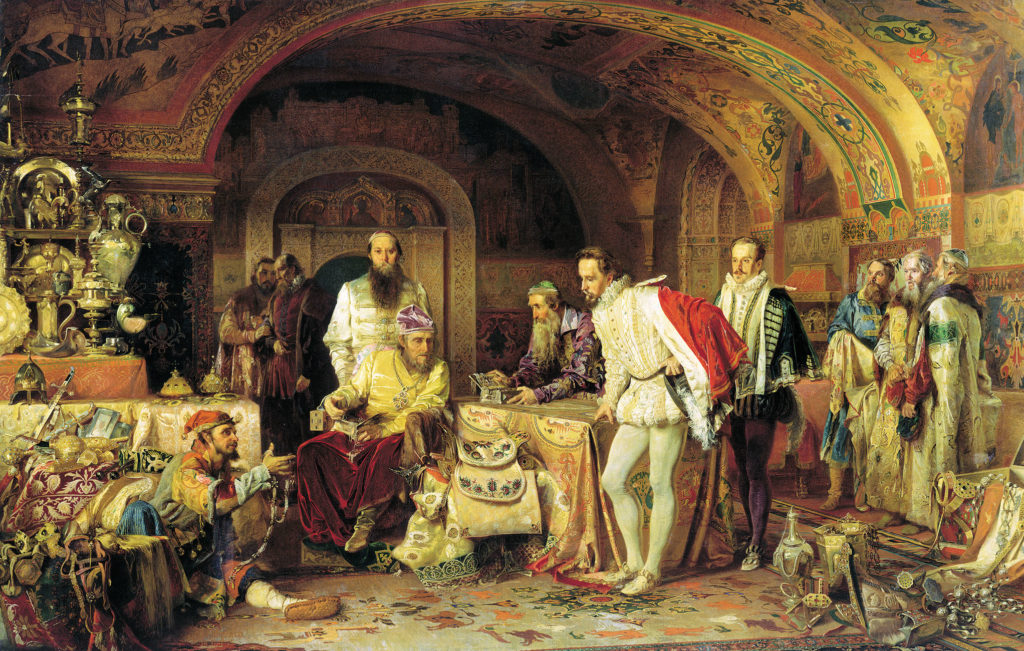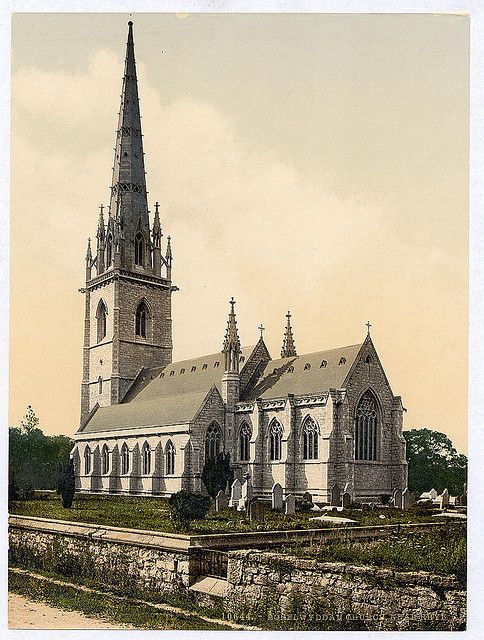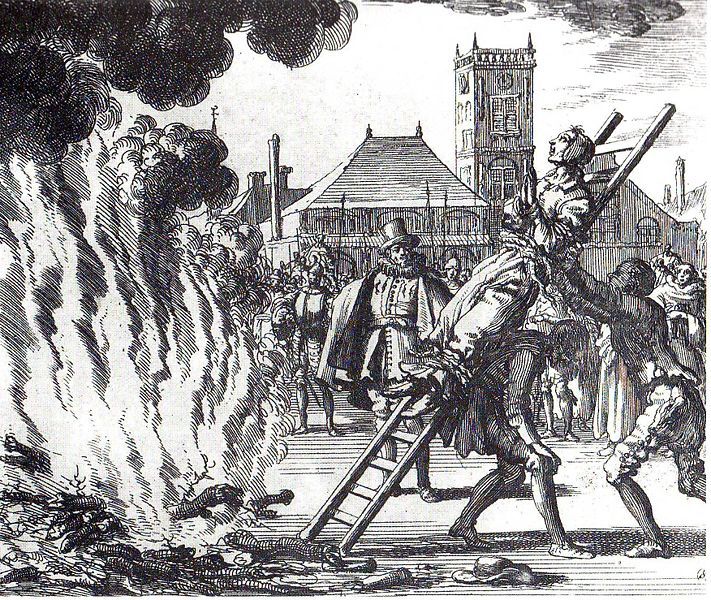In the movie, Elizabeth: The Golden Age, Elizabeth was a powerful woman who refused to get married. England was in dissent since there was a religious war going on between the Protestants and the Catholics. Elizabeth, being a protestant herself, sided with the Protestants. This however caused confusion amongst the English people, as they did not know which side to support.
While it was not a crime to be Catholic in Elizabethan England, there was no legal way for Catholics to practice their faith. It was illegal to hold or to attend a Mass. Powerful people, however, were less likely to be punished than others. Many of the upper classes were exempt from the new oaths of allegiance to the Church of England, and often wealthy Catholic families secretly maintained private chaplains.

The Forty-Two Articles of Anglican doctrine, written by Thomas Cranmer in 1552, was adopted by the convocation of clergy under Elizabeth I to form the Thirty-Nine Articles in 1563. At the other end of the spectrum of Anglican Christianity, the Puritans arose to become a powerful force for renewal in the Church.
Elizabethan Era Religion Facts
Contents
The 1559 Act of Supremacy bill, in a few words, gives full authority of the Church of England to the reigning monarchy, overpowering the Pope in Rome. Elizabeth also declared an Oath of Supremacy, instructing those in the church office to swear to acknowledge the monarch as head of both Church and state.
Elizabethan Catholics firmly believed that Priests were the link between God and the people and that the Pope was ordained by God. Catholic Priests were viewed as special and expected to devote their lives to God and remain unmarried and wear elaborate robes. Elizabethan Protestants believed that people could find God without a priest or a Pope and that Ministers were ordinary people who should lead normal lives and wear ordinary robes.

In 1558, Mary died and Elizabeth became queen. Faced with a country that was reeling from religious differences, Elizabeth once again made the Church of England the official religion, although retaining some Roman Catholic traditions in the church by issuing the 39 Articles of 1563, which was designed to prevent the country from further turmoil.
Everyone had a religion. All were Catholic Christians before 1555.
The official religion was the Church of England – new religion.
Puritanism was not a separate religion, but a Calvinist inclination within the Anglican church.
There was a fine for non-conformation e.g. missing a church on Sunday. And every church was a protestant church. Imagine how much fine today’s generation would pay!
Catholic priests in England were not legal. It was illegal to be a Jesuit. Everyone had to attend a church prayer service once a month. You could not call it a “mass” since that name is for Catholic service.

How did religion affect the Elizabethan era?
Although Queen Elizabethan was lenient towards people who followed catholicism, specific laws such as fining someone for not attending the church, were imposed to solidify the position of the church. Freedom of religion was allowed as long as the laws were obeyed.
A person’s religious beliefs were also closely associated with his political leaning. landowners and business who might have acquired a plot which once belonged to a monastery would face threats from them. King James I, who succeeded Elizabeth after her death, faced death threat in the Gunpowder plot which was a catholic conspiracy to kill him.
Who decided the favoured religion in the Elizabethan era?
It was mainly the monarch of the state who decided the favoured religion. Mary favoured the Catholic church and executed people who refused to follow it. When she was succeeded by Elizabeth, who was inclined towards Protestantism, the favoured church was also made protestant.
Religion in Shakespeare
Shakespeare, like the other people of England, was well aware of the power struggle between the churches and the political association with them. He often incorporated his commentary about the influence of the church on the culture and politics on England in his plays. In Twelfth Night, the character Malvolio jokes about a strict puritan life.
In the Macbeth, the porter’s speech is a commentary on the act of equivocation, or not telling the truth so that one could avoid the incrimination of oneself. It was in fact, a direct reference to the Gunpowder plot.
Religion and superstition in the Elizabethan era
Religion also played a huge role in infusing superstition in the minds of people in the 16th century. Witchcraft was believed to be practised by many women, and King James I was particularly superstitious about witches. Under his rule, thousands of women were burnt at stakes on the charge of practising witchcraft.

Superstitions such as one must not walk under a ladder because they lead to gallows etc. are still believed in by many people, which actually emerged in the 16th century.
Protestant religion
The protestant faith had emerged in order to move away from the abusive regime of the Catholic church during the late 15th and 16th century. The protestant churches emerged from the Reformation and were also known as Evangelical churches which means “according to Gospel”.
Contrary to the Catholic church which believed itself to be the only true church in the world, the protestant church did not believe in the centrality of one church. There are thousands of denominations of it around the world. All of these churches are considered equal.
Catholicism in the Elizabethan Era
Her tolerance of Roman Catholicism would wane in her later years as assassination plots were uncovered that originated in at the hands of Roman Catholics that sought to reestablish a Roman Catholic queen.
As the fear of Witches increased in Europe, the Catholic Church added to its definition of Witches, anyone who had the knowledge of herb craft. The Church had decided that anyone who used herbs or plant for cures only did so through a pact with the Devil, either explicitly, or implicitly.
Role of Church in Elizabethan England
The church played a great role in the lives of the people of the Elizabethan era. While Catholicism and Protestantism were the two major opposing churches in England, beliefs and convictions were so strong that it led to fierce fights and executions of many champions of both faiths.
If one did not follow the favoured religion, one was often punished by imprisonment, torture and even death. Following the opposite faith could also result in putting ones wealth and freedom at risk.
